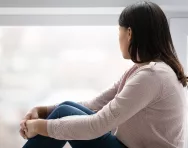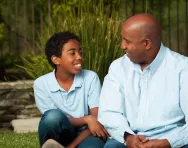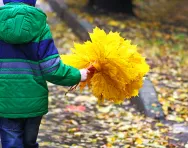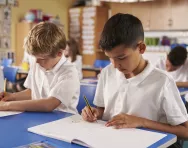Important update from TheSchoolRun
For the past 13 years, TheSchoolRun has been run by a small team of mums working from home, dedicated to providing quality educational resources to primary school parents. Unfortunately, rising supplier costs and falling revenue have made it impossible for us to continue operating, and we’ve had to make the difficult decision to close. The good news: We’ve arranged for another educational provider to take over many of our resources. These will be hosted on a new portal, where the content will be updated and expanded to support your child’s learning.
What this means for subscribers:
- Your subscription is still active, and for now, you can keep using the website as normal — just log in with your usual details to access all our articles and resources*.
- In a few months, all resources will move to the new portal. You’ll continue to have access there until your subscription ends. We’ll send you full details nearer the time.
- As a thank you for your support, we’ll also be sending you 16 primary school eBooks (worth £108.84) to download and keep.
A few changes to be aware of:
- The Learning Journey weekly email has ended, but your child’s plan will still be updated on your dashboard each Monday. Just log in to see the recommended worksheets.
- The 11+ weekly emails have now ended. We sent you all the remaining emails in the series at the end of March — please check your inbox (and spam folder) if you haven’t seen them. You can also follow the full programme here: 11+ Learning Journey.
If you have any questions, please contact us at [email protected]. Thank you for being part of our journey it’s been a privilege to support your family’s learning.
*If you need to reset your password, it will still work as usual. Please check your spam folder if the reset email doesn’t appear in your inbox.
Child to parent abuse: ‘My daughter made threats to kill me’
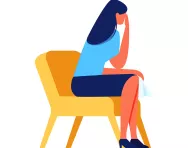
Around 10% of families experience child to parent abuse (CPA), including physical violence, threats, coercion, stealing and damage to property.
Here, the mum of a young teenager explains how CPA affected the whole family, and their struggle to find support.
‘She regularly verbally abused us’
My child was 13 when she started to be abusive towards me, her father and her siblings. It started off with her pushing boundaries, but it soon escalated into physical violence, emotional abuse, controlling behaviour, intimidation and threats, including threats to kill me.
She had no diagnosis of additional needs, although she had experienced childhood trauma.
As things escalated, we started to avoid being alone with our child, and we stopped leaving her in a room together with her siblings. Money and other items were stolen, and she regularly verbally abused us and called us some of the most horrific names.
‘I had to give up my job’
We stopped going out as a family, and didn’t dare have anyone over as our child’s behaviours weren’t just displayed in front of us, but in front of other people, too. I had to give up my job, and was threatened with fines as she stopped going to school.
We asked, talked, and begged our daughter to stop, but in the end we found ourselves not parenting her fully or trying to get her to change her behaviour: it was the only way we could avoid incidents and keep ourselves safe.
Hiding in my room and barricading the door from my child to stop her potentially killing me sounds far-fetched, like something that you would see on TV, but this was not a drama, soap or film: it was my life.
We had to make risk assessments daily and made numerous safety plans. At one point, my partner and other children had to leave our home due to the risk she was posing them.
‘Nobody seemed to know what to do’
Realising my daughter’s behaviour was abusive and asking for help was not easy, but even though she had made threats and researched how to kill me, we were given no support. We were told that because we as parents were not a risk to our children, there were no safeguarding concerns. No one looked at the risk to the rest of the family from my daughter.
Even at crisis point, nobody seemed to know what to do, but everyone was quick to point the finger at me and say that I shouldn’t be fearful of my own child, and all I needed to do was parent properly.
If my partner had been treating me like that, I would have been believed and supported, but instead, I was blamed, shamed and judged by the people who should have helped.
The incidents didn’t stop; rather, they escalated to the point that I made the heartbreaking decision to ask that the local authority to accommodate my daughter. It was something I’d never wanted or expected to have to do, and I would have given anything to have had a different choice.
‘Knowing I’m not alone makes a huge difference’
To any parent out there who’s in a similar situation, I would say to reach out to those around you. Make a safety plan, and if you feel comfortable, talk to a neighbour who could raise the alarm for help if need be, or who could look after any other children in an emergency.
If it’s safe to do so, keep a log of your child’s behaviour so that you can show any professionals who you approach. It may also help you identify a pattern or any triggers.
Be prepared to talk your child’s school or other education setting, their GP, who may be able to make a referral to CAMHS, and even the neighbourhood policing team: not to criminalise your child, but to see what support they can offer.
Look at what’s on offer locally and nationally, and see what services are available for others in your family. PEGS – a not-for-profit organisation that supports families with CPA, including through one-to-one support, counselling and drop-in groups – has been such a help for me; just knowing that I’m not alone, not judged and that others understand has made a huge difference.
Remember, CPA is not your fault, and it’s not okay for your child to behave like this.
Support with child to parent abuse
- PEGS: a not-for-profit organisation which offers one-to-one support, counselling, drop-in groups and support programmes depending on your family’s needs
- Family Lives: a confidential and free helpline service
- Refuge: an organisation supporting women, children and men experiencing domestic abuse
- Who’s in Charge: a nine-week programme for parents experiencing CPA
- Samaritans: a 24-hour listening helpline service
- Childline: help and advice for children and young people under the age of 19
- YoungMinds: mental health support for young people, with a parents’ helpline
- YoungSibs: online support for young people who have a disabled brother or sister
With thanks to PEGS for supplying this case study.
